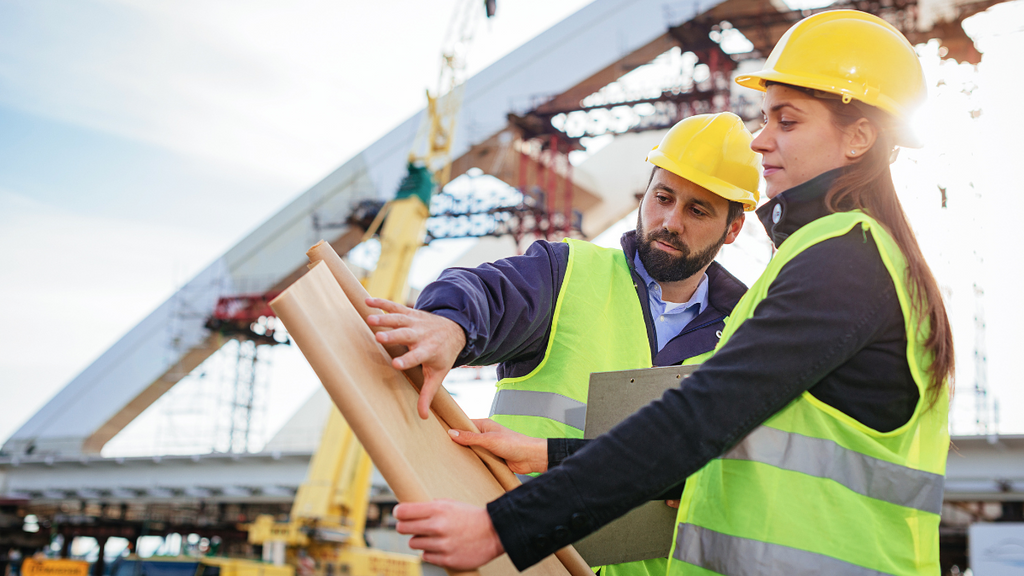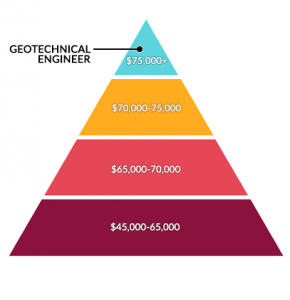The 5-Minute Rule for Geotheta
Table of ContentsThe 3-Minute Rule for Geotheta10 Easy Facts About Geotheta DescribedFacts About Geotheta RevealedThe Facts About Geotheta UncoveredHow Geotheta can Save You Time, Stress, and Money.

They perform website investigations, gather examples, perform research laboratory examinations, and evaluate data to evaluate the suitability of the ground for construction projects - Geotechnical Engineers. Based upon their findings, geotechnical engineers offer referrals for structure style, incline stability, retaining structures, and reduction of geotechnical dangers. They collaborate with various other specialists, such as designers, structural engineers, and building teams, to guarantee that geotechnical considerations are incorporated right into the overall task style and application
By assessing the habits and homes of dirt and rock, they can identify prospective geotechnical hazards such as landslides, soil negotiation, or incline instability. Their knowledge assists stop failings or mishaps that might threaten lives and residential or commercial property. Right here are some in-depth obligations and responsibilities of a geotechnical designer: Website Investigation: Geotechnical designers conduct website examinations to gather information on subsurface conditions.
They analyze the data to comprehend the residential or commercial properties and habits of the soil and rock, including their stamina, permeability, compaction qualities, and groundwater problems. Geotechnical Analysis and Layout: Geotechnical designers examine the information gathered during website examinations to evaluate the security and viability of the site for building and construction projects. They carry out geotechnical computations and modeling to evaluate variables such as birthing ability, settlement, slope security, side earth pressures, and groundwater flow.
Geotheta for Dummies
Foundation Style: Geotechnical engineers play a vital duty in creating foundations that can safely sustain the intended framework. They assess the soil problems and load demands to determine the ideal foundation kind, such as superficial foundations (e.g., grounds), deep structures (e.g (https://telegra.ph/Why-Geotheta-is-Your-Go-To-for-Geotechnical-Engineers-in-South-Africa-08-02)., heaps), or specialized methods like soil improvement. They take into consideration variables such as settlement limits, birthing capability, and soil-structure interaction to create ideal foundation layouts
They evaluate construction strategies, display website tasks, and conduct area assessments to verify that the layout suggestions are followed. If unpredicted geotechnical concerns occur, they assess the circumstance and provide referrals for remediation or changes to the design. Threat Assessment and Mitigation: Geotechnical designers evaluate geotechnical threats and dangers related to the job website, such as landslides, liquefaction, or soil erosion.

Collaboration and Interaction: Geotechnical engineers function carefully with various other professionals associated with a project, such as designers, architectural engineers, and building and construction teams. Reliable communication and cooperation are vital to incorporate geotechnical considerations right into the overall task design and building procedure. Geotechnical engineers provide technical knowledge, answer queries, and make sure that geotechnical requirements are met.
Not known Facts About Geotheta
Here are some kinds of geotechnical designers: Structure Engineer: Foundation engineers specialize in creating and assessing structures for frameworks. They evaluate the dirt problems, lots needs, and website features to determine one of the most appropriate foundation type and design, such as superficial structures, deep structures, or specialized methods like stack foundations.
They assess the elements influencing slope YOURURL.com security, such as dirt residential or commercial properties, groundwater conditions, and incline geometry, and create strategies to prevent incline failings and minimize dangers. Earthquake Engineer: Quake designers focus on examining and creating frameworks to stand up to seismic forces. They assess the seismic hazard of a website, review soil liquefaction potential, and establish seismic layout requirements to guarantee the safety and strength of structures during quakes.
They perform field testing, collect examples, and assess the gathered information to define the soil homes, geologic formations, and groundwater problems at a site. Geotechnical Instrumentation Designer: Geotechnical instrumentation engineers concentrate on tracking and measuring the actions of soil, rock, and frameworks. They set up and maintain instrumentation systems that keep an eye on factors such as dirt settlement, groundwater degrees, slope movements, and structural variations to examine performance and supply early cautions of potential problems.
How Geotheta can Save You Time, Stress, and Money.
They carry out examinations such as triaxial examinations, debt consolidation examinations, direct shear examinations, and permeability tests to collect information for geotechnical analysis and layout. Geosynthetics Designer: Geosynthetics designers specialize in the style and application of geosynthetic materials, such as geotextiles, geogrids, and geomembranes. They utilize these products to boost dirt security, reinforce slopes, supply water drainage services, and control erosion.
They often tend to be investigatory people, which indicates they're intellectual, reflective, and analytical. They are curious, methodical, reasonable, analytical, and rational. Some of them are likewise social, implying they're kind, charitable, participating, individual, caring, practical, compassionate, tactful, and pleasant - Geo Tech Engineer.
In the office environment, geotechnical designers use specialized software application tools to perform estimations, produce designs, and assess data. They prepare reports, testimonial task specs, communicate with customers and team participants, and coordinate job activities. The workplace setting gives a favorable environment for research, evaluation, and cooperation with other professionals entailed in the job.
Geotheta Things To Know Before You Buy
They regularly visit job websites to conduct site examinations, assess geotechnical problems, and collect data for evaluation. These sees involve traveling to various areas, in some cases in remote or difficult surfaces. Geotechnical engineers may carry out dirt tasting, conduct tests, and screen building and construction tasks to guarantee that the geotechnical elements of the task are being implemented properly.
Geotechnical engineers also work in specialized geotechnical labs. Geotechnical lab designers function extensively in these environments, dealing with testing equipment, operating tools, and recording information.